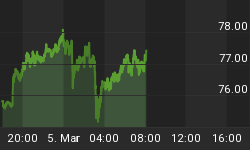Below is an excerpt from a commentary originally posted at www.speculative-investor.com on 3rd December 2009.
What caused Dubai's boom and bust?
Frank Shostak had some interesting things to say about Dubai's financial troubles in the brief article posted at http://blog.mises.org/archives/011119.asp. Of particular importance, he explains that the boom/bust policies of the UAE (United Arab Emirates) central bank are at the root of today's predicament. According to Shostak, in response to the central bank's rapid money pumping the yearly rate of growth of the UAE's AMS (Austrian Money Supply) jumped from 6% in October 2006 to 62% in April 2008. This massive money pumping supported various activities that would/could not have persisted in its absence.
He goes on to point out that the pace of pumping by the central bank reversed course and began to trend downward in January of 2008, resulting in the yearly rate of growth of AMS falling to MINUS 12.5% by July this year. The fall in the money-supply growth rate put pressure on the 'bubble' activities that sprangup on the back of previous pumping.
To varying degrees, something along the lines of the Dubai experience is taking place throughout much of the world. Describing it in general terms, an investment bubble big enough to engulf a large part of the economy gets fomented by the central bank's inflationary policies (money pumping, suppression of interest rates and manipulation of currency exchange rates). After a considerable time the central bank tries to deflate the bubble, typically because the evidence of an inflation problem has spread from the financial markets to the realm of everyday goods and services, and these restrictive efforts eventually lead to sharp declines in asset prices and an economic slump. To stem the price decline and support the economy, the central bank then returns to its inflation-promoting ways. The additional money it helps create eventually leads to rapid price increases somewhere in the economy, and so on. The process can -- and probablywill -- continue until there is a complete collapse of the monetary system.
A relevant point not mentioned in the Shostak article is that the UAE's rapid monetary inflation was an indirect consequence of US monetary policy. The UAE pegs its currency (the Dirham) to the USD, so a large increase in the supply of US dollars brings about the need for a large increase in the supply of the UAE's currency (to prevent the Dirham from rising in value relative to the USD). Moreover, to maintain the currency peg the UAE central bank's money pumping had to be disproportionately fast because a disproportionately large quantity of the newly created dollars made their way to the UAE. This was because theoil market was one of the main beneficiaries of inflation during 2003-2008.
Dubai's dire financial situation is therefore a good example of how the Fedwreaks havoc throughout the world, not just in the US.
Is gold a hedge against inflation?
As we've explained a number of times over the years, it is not strictly correct to say that gold is a hedge against inflation. We are convinced, however, that under the current system a high rate of monetary inflation is one of the two primary ingredients of a long-term gold bull market. Monetary inflation is not sufficient by itself, but when mixed with the second ingredient the resultwill be a powerful advance lasting many years.
The second ingredient is: enough economic weakness/problems to bring about a general increase in the desire to save. The economic problems cause both an increase in the desire to save and a reduction in the demand for growth-oriented investments such as equities, while a high rate of monetary inflation promptspeople to save in terms of something other than the official currency.
Rather than saying that gold is a hedge against inflation it is therefore more correct to say that gold is a hedge against inflation under certain economic conditions. At other times, investments such as general equities could proveto be far better hedges against inflation.
Before leaving this topic we'll point out that under the current monetary system gold will never be a hedge against deflation. If the public believes that the official currency will be worth more in the future than it is in the present then its demand for gold will almost certainly not rise (and will most likely wane). For example, the investment demand for gold has been ramping upward over the past 12 months because, rightly or wrongly, most people don't believe the arguments being made by the deflationists. Instead, they are looking at how the authorities reacted to last year's financial crisis and are assuming -- again, rightly or wrongly -- that every crisis will be met with a flood of new money. If at some future time this belief proves to be wrong and the deflationists' arguments prove to be correct, then at that time the investment demand for gold -- and the gold price -- will fall.
We aren't offering a free trial subscription at this time, but free samples of our work (excerpts from our regular commentaries) can be viewed at:http://www.speculative-investor.com/new/freesamples.html.















